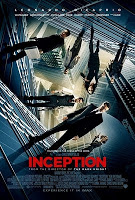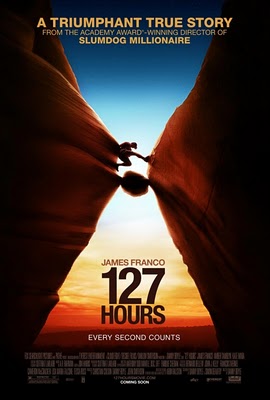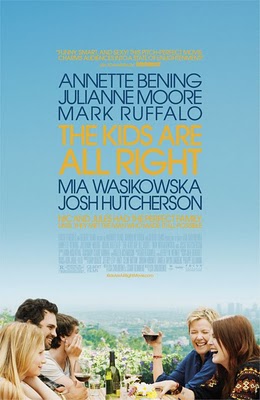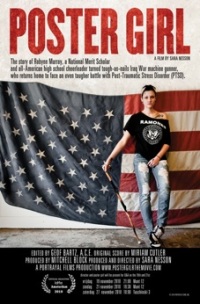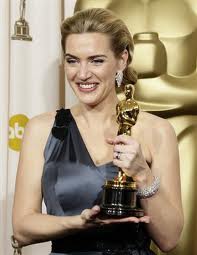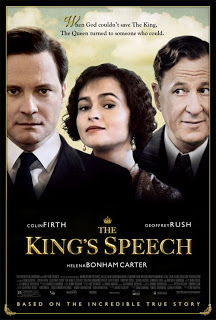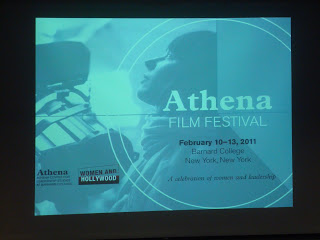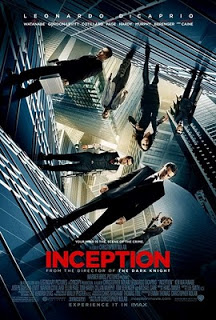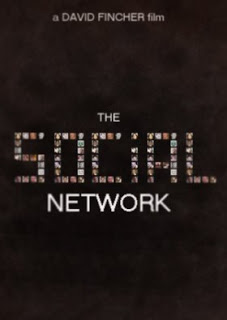Here’s why.
The Academy Awards are the most visible celebration of filmmaking in the United States–and possibly the world. Yet–and despite the misnomer of “liberal Hollywood”–they continue to exhibit cultural values and norms that are conservative and simply unacceptable. Women are typically rewarded for playing roles that support a central male character in films. People of color are rarely nominated for–and even more rarely win–major awards. This year (as in most years), all Best Director nominees are white men. (Only one woman has EVER won this category.) The Best Picture nominees are about white people (or white cartoon characters), and are lauded by mostly white male critics. Even in a movie about lesbians, a man takes center stage. We could go on, but you get the idea.
We can’t just ignore the Oscars. We need to make our voices heard. That’s one reason we run a series of feminist film reviews on the Best Picture nominees. Our reviews focus on the women in these movies, and are written by women who go out and buy movie tickets. We hope you’ll read them and add your voices to the discussion.
The 2011 Academy Awards Ceremony airs this coming Sunday, February 27. Check out our reviews of the Best Picture Nominees before you tune in. Which film do you think should walk away with the Best Picture Oscar? Which one do you think will?
Inception reviewed by Amber Leab:
“It’s assumed that, of course we want Cobb to win because he’s really Leo, and, you see, Leo is talented but Troubled. What troubles him? You guessed it: a woman. A woman whose very name–Mal (played by Marion Cotillard, an immensely talented actress who’s wasted in this role)–literally means ‘bad.’ Who or what will rescue Cobb/Leo from his troubles? You guessed it again: a woman. This time, it’s a woman whose very name–Ariadne (played by Ellen Page in a way that demands absolutely no commentary)–means ‘utterly pure,’ and who is younger, asexual (a counter to Mal’s dangerous French sexuality) and without any backstory or past of her own to smudge the movie’s–and her own–focus on Cobb/Leo. So, it’s not a stretch here to say that Cobb needs a pure woman to escape the bad one. Virgin/whore stereotype, anyone?”
Toy Story 3 reviewed by Natalie Wilson:
“While the girls in the audience are given the funny and adventurous Jessie, they are also taught women talk too much: Flirty Mrs. Potato-Head, according to new character Lotso, needs her mouth taken off. Another lesson is that when women do say something smart, it’s so rare as to be funny (laughter ensues when Barbie says ‘authority should derive from the consent of the governed’), and that even when they are smart and adventurous, what they really care about is nabbing themselves a macho toy to love (as when Jessie falls for the Latino version of Buzz–a storyline, that, yes, also plays on the ‘Latin machismo lover’ stereotype).”
The Fighter reviewed by Jessica Freeman-Slade:
“It’s when the instincts of the protective mother and the defensive girlfriend go up against each other that all hell breaks loose. Alice decides to storm over to Mickey’s house with her daughters in tow, ringing the bell and banging on the door just as Micky and Charlene are doing the nasty. The bell rings and rings, and Charlene, furious at being interrupted, throws on a t-shirt and storms downstairs. Alice pleads with Micky to leave and come back home, but Charlene accuses Alice of allowing her son to get hurt, instead of stepping in and protecting him. In the midst of a boxing movie, what we get is a treatise on how women are the only ones that really know how to fight.”
The King’s Speech reviewed by Roopa Singh:
“It cannot be said that this film has any meaningful roles for women, who are simply not the focus in this story. No matter how much is written about Helena Bonham Carter’s canny and compassionate Elizabeth, the film boils down to cinematic basics when it comes to women. There are two doting wives (Jennifer Ehle as Myrtle Logue), one frowned upon mistress (Eve Best as Mrs. Wallis Simpson), and three rather doll-like daughters. Aside from a small battle of wills between Bertie and Elizabeth (in which we taste a tiny bit of her wry cunning as the Red Queen in Tim Burton’s Alice in Wonderland
), there is not a hint of nuance for any female role. No, you don’t watch this film to see women shine. Instead, what makes The King’s Speech unique is its tender treatment of a relationship between two men, Logue with his power to heal, and Bertie with his power to rule.”
Black Swan reviewed by Amber Leab and Stephanie Rogers:
“Regardless, I like that Black Swan implies that these ideals for women can’t actually exist without women destroying themselves in the process of attaining them. We live in a society where women’s bodies exist as pleasure-objects for men, as dismembered parts to sell products, as images to be dissected, airbrushed, made fun of, all under a government that continues to chip away at women’s rights to bodily autonomy. In that kind of environment, when does a woman’s body ever feel entirely her own? Black Swan sets up that metaphor quite well, asking the viewer to experience Nina’s struggle to live up to society’s ridiculous expectations for women through several cringe-worthy moments.”
The Social Network reviewed by Carrie Polansky:
“The truth is, the female characters in The Social Network are so poorly written that it is easy to ignore them entirely. They are relegated to the roles of girlfriends, ex-girlfriends, one-night stands, groupies and lawyers out to destroy Mark Zuckerberg’s empire. None of them are directly involved in the creation of Facebook or any other social networking site–they are the scenery that accompanies the male protagonists (and antagonists) as they go about reinventing human communication. In fact, if you removed the women from the story entirely, nothing would really change.”
Winter’s Bone reviewed by Amber Leab:
“This is a patriarchal world of heightened gender roles, where women operate as shields to protect their men, and have little power independently. Ree, having no one to speak out for or protect her, becomes an investigator, and thus an agitator. Instead of keeping the peace, keeping quiet, and knowing her place, she refuses to allow herself and her immediate family to be the victims of an irresponsible and criminal man–even if he is her father. She visits the homes of people she’s known her father to associate with, beginning with a low-level junkie and dealer, and her father’s brother, Teardrop (John Hawkes). As she continues her determined climb through the countryside, the men become less accessible as woman after woman warns Ree against pursuing her father, and warns her, implicitly and explicitly, that there will be harsh consequences for asking questions.”
True Grit reviewed by Cynthia Arrieu-King:
“I don’t know yet how to adequately express my astonishment that not only is the main character of this movie a 14 year-old girl, she is not a 14 year-old girl who gets swept aside, despite the men trying to sweep her aside–and actually dumping her off in the middle of nowhere with some gnarly thugs–for most of the movie. Her resolve is not plucky, it is near maniacal. They can’t get rid of her because she is irrationally rational. My jaw hung open a few times. This of course doesn’t necessarily confirm a feminist message about girl-child power, because she is not exactly a woman, she is a child entertaining in her single-mindedness. The story mostly emphasizes that if you want to be gritty, don’t get side-tracked in the vagaries of your emotion; have forethought and a long-range plan and wield a lawsuit adamantly until you are a nuisance that can’t be ignored.”
The Kids Are All Right reviewed by Megan Kearns:
“Raw and real; it felt as if Annette Bening and Julianne Moore were a real couple fighting to hold onto their family. Usually, you see a film with two lesbians in an affair for men’s titillation, rarely to convey a loving, monogamous relationship. Nic and Jules share a flawed yet devoted marriage, evocative of relationships in real-life. There was simply no need to bring a man into the picture. I wish the film had retained its focus on the couple and their family. It’s such a rarity that we see films featuring lesbian couples let alone two female leads that I had high hopes for, expecting it to be empowering. Sadly, the undercurrent of misogynistic language and male-centrism taints Cholodenko’s potentially beautiful story.”
127 Hours reviewed by Stephanie Rogers:
“His hallucinations suck, too. His sister shows up in a wedding dress. His sister showing up in a wedding dress clearly serves as a vehicle to make us feel bad that he’ll be missing Very Important Life Events if he dies, like his sister’s wedding. More pointlessly, the hallucinated sister, who might have one speaking line if I’m being generous, is played by Lizzy Caplan, an actress who’s had large roles in True Blood, Party Down, Hot Tub Time Machine, Cloverfield, and Mean Girls. Instead of engaging with the film, I found myself taken completely out of it, as I wondered why they would cast an actress who’s clearly got more skills than standing in a wedding dress, looking sullen and disappointed, to stand in a wedding dress looking sullen and disappointed.”
